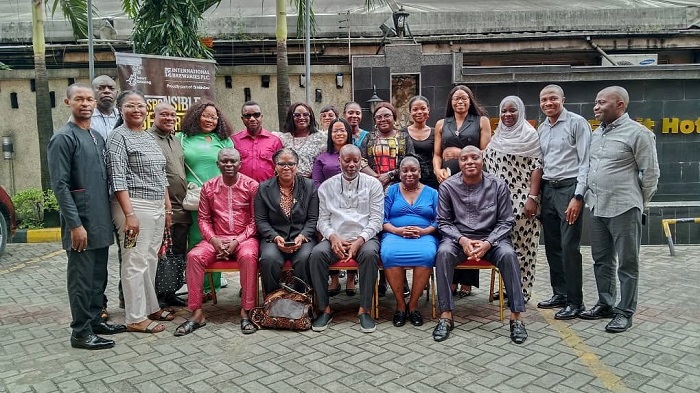…A Step towards Safer Social Drinking
-By Precious Ahiakwo
In a significant move aimed at promoting responsible alcohol consumption and ensuring the well-being of the community, alcohol sales establishments in Port Harcourt have embraced a comprehensive training program focused on responsible beverage service.
Organized and sponsored by IBPlc, this initiative is set to redefine the landscape of social drinking in the city, with an emphasis on minimizing harmful effects and fostering a culture of moderation. As the first of its kind in Rivers State, this collective effort seeks to elevate standards and safeguard the interests of both patrons and the public alike.
The New Nigeria Foundation (NNF), as the implementing partner for IBPlc’s Responsible Beverage Service (RBS) Programme, takes proactive measures in promoting responsible alcohol service and urges legislative action.
During a media round table in Port harcourt, Bunmi Olatunde, Deputy Director of Programmes at NNF, passionately calls on state and local governments to enact and enforce laws preventing alcohol sales to minors, pregnant women, and intoxicated patrons.
This initiative she said aligns with the World Health Organization’s (WHO) campaign and contributes to Sustainable Development Goal 3.
Olatunde emphasizes the program’s goal of controlling harmful alcohol use, highlighting the risks associated with selling alcohol to pregnant women, minors, and intoxicated individuals.
She explains, “When pregnant women consume alcohol, it directly affects the unborn baby, leading to medical issues such as low birth weight, premature birth, and developmental defects”.
To protect these vulnerable unborn babies, Olatunde stresses the importance of training owners and staff of hotels, bars, and restaurants in responsible beverage service, as is being undertaken by the IBPlc RBS initiative. Furthermore, she advocates for stricter enforcement of existing sanctions, particularly the liquor licensing law, to ensure the success of this life-saving endeavour.
Fred Nwogu, Senior Manager at New Nigeria Foundation emphasizes the importance of in-house policies within bars, hotels, and restaurants to prohibit alcohol sales to pregnant women and minors, supported by the local government’s liquor licensing law and rigorous enforcement. He believes that with the proper implementation of such measures, the prevalence of harmful alcohol intake, overconsumption, and binge drinking will diminish in society.
Nwogu acknowledges the cultural significance of beer, as it has brought people together and played a role in communities for centuries. It often marks special moments and celebrations, allowing friends to enjoy and have fun. However, he cautions that beer contains alcohol and can become harmful when excessively consumed. He acknowledges that although the harmful use of alcohol is an old and complex problem, members of the society can resolve to collectively solve it.
Earlier during the launch of the Responsible Beverage Service (RBS) programme, aimed at reducing the harmful effects of alcohol in the society, in Rivers State, Legal and Corporate Affairs Director, IBPlc Temitope Oguntokun, said IBPlc’s vision is to spread the responsible drinking message across Nigeria in the coming years.
“Over the years, with more than 20 million beneficiaries, we have reinforced our commitment to reducing the harmful use of alcohol in Nigeria. In partnership with relevant stakeholders- thanks to partners like the Federal Road Safety Commission (FRSC) and the Beer Sectoral Group (BSG); through our road shows, billboard deployments, radio sensitization, and other enlightenment programmes we have championed the cause of reducing the harmful use of alcohol”.
“After a successful outing in Lagos where we first launched our Responsible Beverage Service with over 10,000 beneficiaries, we are proud to be launching the programme in Rivers State where we hope to record even more success”.
Legal and Corporate Affairs Director, IBPlc Temitope Oguntokun also said “A key component of the RBS programme will be the training of owners and managers of bars and alcohol sales outlets, alcohol service staff, and event centre managers working in alcohol sales outlets. Community champions and health workers will also be trained in the provision of alcohol health literacy to pregnant women”.
Our correspondent reports that the sensitization on non-sales of alcohol to pregnant women and minors is being taken to various hotels and bar owners and their sales representatives in Port Harcourt.


Comment here